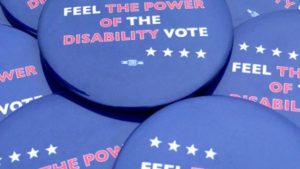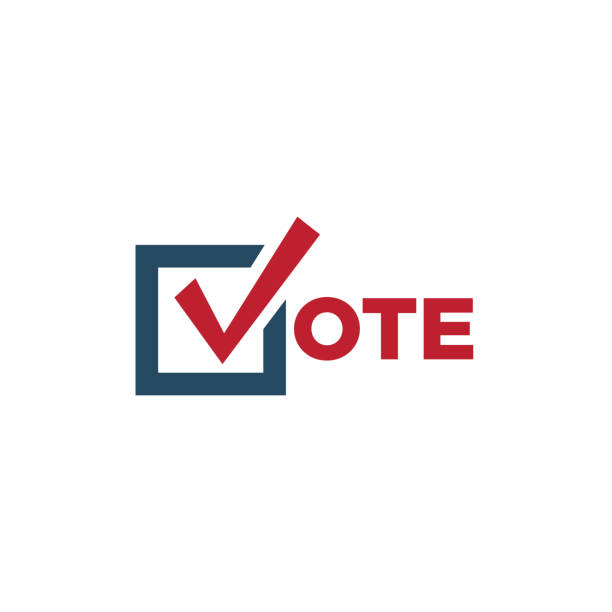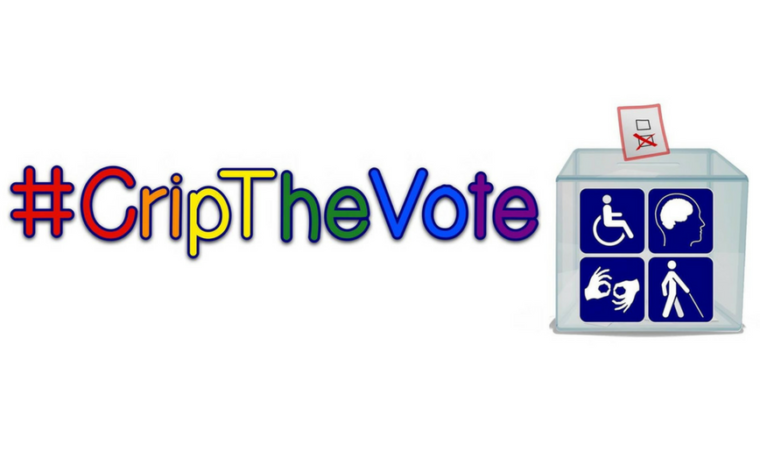Written by Carly Verbeke:
It’s that time of year again: the one where the public gets to voice their opinion on all kinds of matters and decide who is the best candidate to represent us as a whole. That’s right, it’s election time. This year is a big one, since we will elect the next leader of our country. Political affiliations aside, candidates are working hard to be on everyone’s good side, making big promises on equality, especially. Conversations on equality during election time is not new, but is it possible that the disabled community might finally be a part of the conversation? In 2020, approximately 23% of the American electorate — over 35 million individuals — will be people with disabilities. Unfortunately, though, as a person with a disability, I personally know all too well what it is like to be used as a prop by those who wish to profit from my life, and I don’t think I’m the only one.

If you have a disability yourself, you may be familiar with the social movement that started during the last presidential campaign, #CripTheVote. #CriptheVote was a nonpartisan campaign founded on Twitter, and the movement’s cofounder said it began because “No one was mentioning us. Even in relation to issues that had a major impact on our lives.” Although candidates can start with greater acknowledgment of the disability community, there’s more work that needs to be done. Merely mentioning disabled people is not enough to earn the disability vote in 2020. Politicians and public figures can give shout-outs to all kinds of communities, but they also have to work with us and have us on their agenda. While I cannot speak for the entire disabled community, I know that for myself, this means we need a candidate with the courage to address ableism and who will fix the fundamentally broken system with solutions that come directly from the disability community.
In case you are not familiar with any of the presidential candidate’s disability policy positions, initiatives, or priorities, the American Association of People with Disabilities (AAPD), the National Council on Independent Living (NCIL), and the REV UP Campaign have developed a presidential candidate questionnaire that could help inform you. While not every candidate responded to the questionnaire directly, the disability community has been brought into many conversations. The questionnaire responses from every presidential candidate for the 2020 election, as well as their support for various disability-related issues, can be found here.

Joe Biden, a name that most of us are probably more familiar with, cosponsored the ADA and EHA (1990), along with Combating Autism Act (2006) and WIOA (2014). In his campaign this time around, Biden brings up disability a lot when referencing the new educational platform that he wants to build. He also addressed disability in the first rally, saying “The major moral obligation of our time is to restore, and rebuild, and respect the backbone of America, the middle class… No matter who or where they’re from, no matter whether or not they have a disability. All America has to be included as we rebuild it.” Another easily recognizable name from previous political runnings who is returning this year is Bernie Sanders. He actually returned a response to the survey that the AAPD sent out, which you can read here. Curiously, our current president did not submit any responses to the AAPD. Even still, it is clear that disability has become a more important part of the political conversation this election season.


